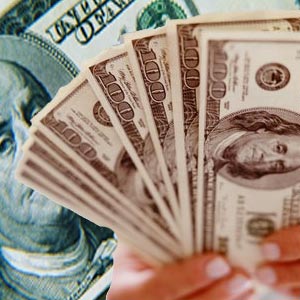
You’ll pay too much in taxes if you don’t understand that cash in minus cash out does not equal profit.
This is the most important thing you need to know before you start keeping records for your business…cash in minus cash out does not equal profit. It simply equals cash left over. Or, in many cases, it’s a negative number, so it equals cash you owe somebody.
What this means is that you’ll need to understand the IRS rules and keep your records according to those rules so you report your profit correctly and take (and be able to prove) all the deductions you’re allowed to take. Because you want to pay the least amount of tax possible, right?
The way you’ll need to keep your books will be different depending on whether your business is a sole proprietorship, a partnership or a corporation. The rules for calculating income and deductions (and therefore profit) and the forms used for reporting to the IRS are different for the different business types.
What counts as income? Most or all of the money you take into your business will count as income. This includes fees for services and/or product sales.
But not all the cash that comes into your business counts as income.
If you get a rebate for a purchase you made at your local office supply store, that’s cash in, but it’s not income. It’s a reduction in your supplies expense.
If you get a refund of part of your insurance premium at the end of the year, that’s cash in, but it’s not income. It’s a reduction in insurance expense.
If you borrow money (and it doesn’t matter if it’s from your brother or the bank), that’s cash in, but it doesn’t count as income.
What counts as expenses? Most of the money you spend for your business will probably count as expenses. This includes advertising, postage, office supplies, and similar items.
But not all the cash that goes out of your business counts as expenses.
When you buy business property like cars, computers, and furniture that will last longer than a year, you’re not allowed to deduct their entire cost as an expense in the year of purchase (except in special circumstances).
These items are called capital assets. Sometimes they’re referred to as fixed assets.
You have to depreciate them over several years. Basically, depreciation is a process of spreading the cost of an item over its useful life.
You might have cash of several hundred or thousands of dollars go out the door when you purchase fixed assets, but you can’t deduct the entire amount of the purchase price as an expense when you buy them.
Some things that your business pays for might only count as partial expenses. An example of that is business meals and entertainment where you can only deduct half of the cost.
That doesn’t mean that your business can’t pay for 100 % of the cost, but only that you’re limited in the amount of the tax deduction you can take. This is another example of cash out that doesn’t translate directly to expenses.
Some things your business pays for might not be tax deductible at all.
An example of this would be a contribution to a Political Action Committee. That doesn’t mean that the business can’t pay for it, just that it’s not a deductible expense on your tax return.
Some more examples of cash that goes out the door that doesn’t count as expenses are: draws for sole proprietors and distributions for partners or S corporation shareholders.
There’s also one type of expense that can be more than the amount of cash that the business actually spends. It’s the home office deduction that some sole proprietors can take.
So you see why it’s so important to understand that cash in minus cash out does not equal profit.
Unfortunately, the IRS rules and regulations don’t always make logical sense; they might seem complicated and unfair. One thing is certain. They are the way they are, so we have to deal with them. Learn what you can. And get help when you need it.
 Sheryl Schuff, CPA, is a Certified Public Accountant, author, and consultant who teaches entrepreneurs how to get their businesses organized, keep good accounting records, and maximize their business tax deductions. She is President of Schuff & Associates, PC and has been in private practice for over 30 years. She recently started an information products company www.TaxesForSmallBusiness.com to provide individual training materials for small business owners.
Sheryl Schuff, CPA, is a Certified Public Accountant, author, and consultant who teaches entrepreneurs how to get their businesses organized, keep good accounting records, and maximize their business tax deductions. She is President of Schuff & Associates, PC and has been in private practice for over 30 years. She recently started an information products company www.TaxesForSmallBusiness.com to provide individual training materials for small business owners.